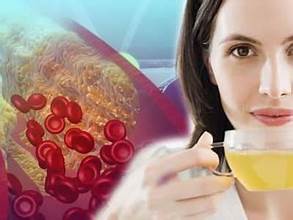In the pursuit of a healthy lifestyle, maintaining optimal cholesterol levels is crucial. High levels of LDL cholesterol, commonly known as “bad” cholesterol, can lead to various health issues. While medication is a viable option, natural remedies provide a proactive approach to control cholesterol levels. Let’s explore effective home remedies that not only combat elevated cholesterol but also contribute to overall well-being.
Curry Leaves: A Natural Antioxidant Powerhouse
Usage Method:
Incorporating curry leaves into your daily routine can significantly reduce cholesterol levels. With its abundance of antioxidants, curry leaves promote the production of good cholesterol, essential for the body’s cellular and hormonal functions.
Recommended Approach:
Consume 8-10 curry leaves daily by incorporating them into your cooking or extract their juice. However, it’s advisable to consult with a healthcare professional before making significant dietary changes.
Coriander Leaves: Beyond Culinary Delight
Usage Method:
Coriander leaves, a common kitchen ingredient, offer more than just flavor enhancement. Regular consumption aids in addressing high cholesterol issues, promoting a healthier lipid profile.
Recommended Approach:
Include coriander leaves in your diet by adding them to salads or preparing a chutney. This simple addition can contribute to the normalization of high cholesterol levels.
Jamun (Indian Blackberry) Leaves: Nature’s Cholesterol Fighter
Usage Method:
Jamun leaves stand out as a natural remedy for reducing cholesterol levels. Packed with antioxidants and anthocyanins, these leaves actively work to decrease fat accumulation in blood vessels.
Recommended Approach:
Incorporate jamun leaves into your routine by consuming them in powdered form or brewing them into a tea or decoction. Regular intake, 1-2 times a day, can be beneficial for cholesterol management.
Fenugreek Leaves: Medicinal Properties for Cholesterol Control
Usage Method:
Studies reveal that fenugreek leaves possess medicinal properties effective in maintaining healthy levels of cholesterol and triglycerides. Including fenugreek leaves in your diet can contribute to a positive impact on your lipid profile.
Recommended Approach:
Integrate fenugreek leaves into your meals as a regular vegetable. This simple addition can aid in normalizing cholesterol levels and supporting overall cardiovascular health.
Holy Basil (Tulsi) Leaves: Stress Reduction for Cholesterol Management
Usage Method:
Tulsi leaves have proven beneficial in normalizing cholesterol levels by reducing metabolic stress. The compounds present in holy basil actively contribute to weight and cholesterol management.
Recommended Approach:
Kickstart your day by consuming tulsi leaves on an empty stomach. Prioritize washing 5-6 leaves thoroughly before consumption for optimal results.




